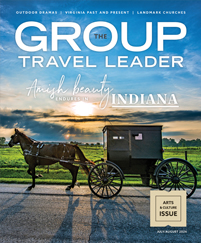“Flight attendants, doors for departure, cross-check and all-call.”
If you fly often, you have probably heard announcements like this on airplanes many times. But have you ever stopped to figure out what they mean?
One day early in my career, I found myself chatting with a friendly crew member during a slow period on a cross-country flight. So, I asked her: What does “doors for departure, cross-check and all-call” mean?
She explained that this is a safety checklist that helps flight attendants ensure an aircraft is ready to leave the gate. “Doors for departure” is an order to lock all the doors to ensure the plane can achieve proper pressurization at altitude. “Cross-check” means that after each flight attendant locks his assigned door, another flight attendant should come and check that it is locked correctly. And “all-call” means that after the cross-check, each attendant should call the flight leader at the front of the cabin to report that the doors were locked and checked. Only after this can the aircraft push back from the gate.
Over the years, I would come to learn that this was just one of dozens of checklists that have made commercial aviation the remarkably safe industry it is today. And it’s not just airlines — America’s top theme parks use extensive checklists to make sure rides are safe, public areas are clean and guests have reliably magical experiences. Checklists are integral to the success of many businesses, from hotels to factories. We even rely on checklists (as well as some cross-checks and all-calls) to ensure each issue of The Group Travel Leader goes to press error-free.
If checklists benefit flight crews, theme parks and magazine publishers, they can probably benefit you too. Integrating checklists into your business processes and trip operations could help you minimize trouble on the road and run a more efficient — and maybe even more profitable — travel organization.
Here are a few business areas where you should consider using some checklists:
• Pre-trip accounting: From gathering customer deposits to issuing final vendor payment, your accounting system has a lot of moving parts. Checklists can help everyone get paid on time — including you.
• Packing: Having a thorough packing checklist can help ensure you’re never without an essential item while traveling. And if you share that checklist with your travelers, you can head off some on-the-road hassles before they materialize.
• Departing: Every time a tour group leaves somewhere — its point of origin, an attraction or a hotel — there’s an opportunity for something or someone to get left behind. Instituting a checklist and some cross-checks can keep prevent lost time and angry passengers.
• Post-trip follow-up: Your trip isn’t over the moment you get back home. Strategic follow-up with guests, vendors and team members can help you learn lessons and refine your operations. A checklist will help you complete this process well instead of getting distracted by all the other work waiting for you when you get home.
Using checklists doesn’t mean you’ll never encounter another challenge on the road. But it will help you travel with the confidence that you have done everything possible to prepare so you — and your customers — can have the best trip possible.
Are you ready for takeoff?











